How A Trip To India Taught One Woman The Importance Of The Human Connection (And The Dangers Of Assumptions)
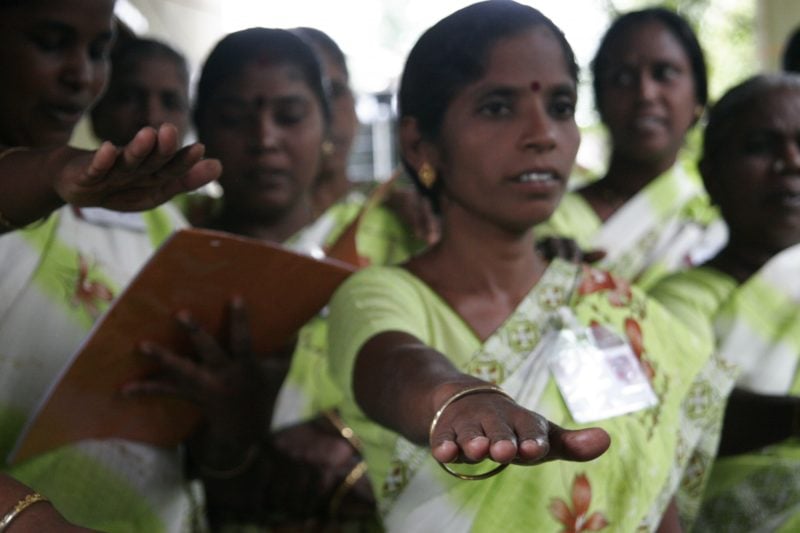 When Dr. Froswa Booker-Drew was selected to participate in the filming of a documentary called Friendly Captivity, which follows seven women from Dallas to India, she never imagined how this life-changing experience would become the focus of her dissertation. Here she shares her insights about interacting with women in India, and how much alike females are — no matter where they come from.
1. What inspired you to want to travel, and what made you choose India?
I love to travel. It has been an opportunity for me to experience new people and different foods, and learn so much about the culture and history of a place. Prior to my trip to India, I had traveled domestically quite a bit, but I had not been out of the country except to border cities in Mexico as a child.
For me, a trip to India was actually not planned. A friend of mine sent to me an email about a casting call for a documentary called “Friendly Captivity” that was to feature several women visiting India from the Dallas-Fort Worth area. Out of 75 women who applied, I was one of seven who was selected. I had never been in a documentary and, for me, it was a first to travel internationally. I didn’t know the ladies very well, but the filmmaker’s vision (Sue Sullins) and the tour guide (Nancy Ricks) were amazing in preparing me for what to expect and ensuring that this trip would be an experience of a lifetime.
When Dr. Froswa Booker-Drew was selected to participate in the filming of a documentary called Friendly Captivity, which follows seven women from Dallas to India, she never imagined how this life-changing experience would become the focus of her dissertation. Here she shares her insights about interacting with women in India, and how much alike females are — no matter where they come from.
1. What inspired you to want to travel, and what made you choose India?
I love to travel. It has been an opportunity for me to experience new people and different foods, and learn so much about the culture and history of a place. Prior to my trip to India, I had traveled domestically quite a bit, but I had not been out of the country except to border cities in Mexico as a child.
For me, a trip to India was actually not planned. A friend of mine sent to me an email about a casting call for a documentary called “Friendly Captivity” that was to feature several women visiting India from the Dallas-Fort Worth area. Out of 75 women who applied, I was one of seven who was selected. I had never been in a documentary and, for me, it was a first to travel internationally. I didn’t know the ladies very well, but the filmmaker’s vision (Sue Sullins) and the tour guide (Nancy Ricks) were amazing in preparing me for what to expect and ensuring that this trip would be an experience of a lifetime.
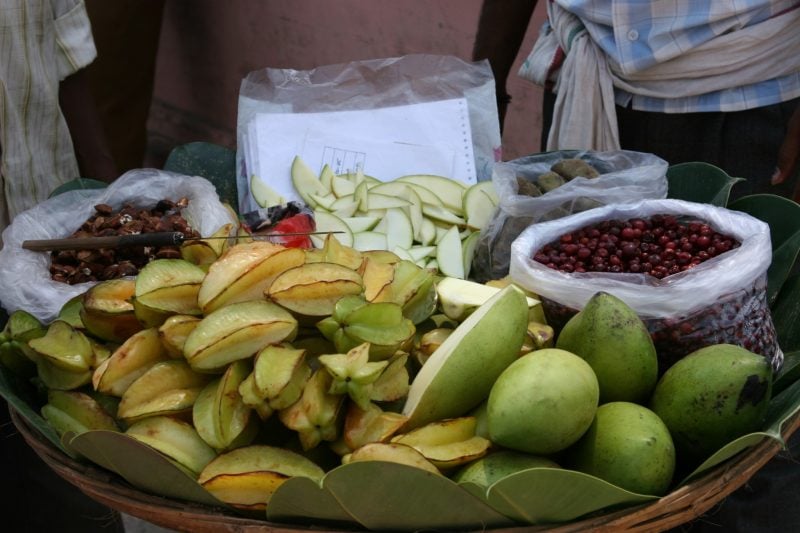 2. You had encounters in India that had a huge impact on you. What were these, and how did they change your life?
There were so many experiences that changed my life. Seeing the Red Light District in Mumbai and realizing that human trafficking is real. I was blown away by the ages of the young girls who were being sold. The poverty I saw there was unbelievable. Even though we have poverty in the U.S. — and I don’t want to compare the two because they are different circumstances — I felt helpless to see children as beggars. I met a young lady who was burned by her stepmother and left for dead. I washed the feet of women who were former prostitutes. I saw women who were activists fighting for changes in their communities as well as becoming entrepreneurs which changed family dynamics.
When these women were making money, they were able to send their children to school and their husbands even interacted with them differently. I met children who had HIV and were abandoned by their families, but I saw such hope. I saw women despite their poverty had such peace unlike many of us in the United States who have material possessions and are often miserable.
Westerners tend to lump people into categories and make assumptions — which I learned quickly to let go of all of my preconceived ideas. I realized that the experiences I had in Mumbai, Chennai and Thiruvananthapuram (or Trivandrum) were different and so were the cultures, food and people.
It changed my life to understand how blessed I am and how blessed people in First World countries are. This experience was the catalyst for my interest in helping women and marginalized populations. Ultimately I went back to school to obtain a PhD that was based on bringing diverse women together to build relationships. It was this experience that helped me to do so.
2. You had encounters in India that had a huge impact on you. What were these, and how did they change your life?
There were so many experiences that changed my life. Seeing the Red Light District in Mumbai and realizing that human trafficking is real. I was blown away by the ages of the young girls who were being sold. The poverty I saw there was unbelievable. Even though we have poverty in the U.S. — and I don’t want to compare the two because they are different circumstances — I felt helpless to see children as beggars. I met a young lady who was burned by her stepmother and left for dead. I washed the feet of women who were former prostitutes. I saw women who were activists fighting for changes in their communities as well as becoming entrepreneurs which changed family dynamics.
When these women were making money, they were able to send their children to school and their husbands even interacted with them differently. I met children who had HIV and were abandoned by their families, but I saw such hope. I saw women despite their poverty had such peace unlike many of us in the United States who have material possessions and are often miserable.
Westerners tend to lump people into categories and make assumptions — which I learned quickly to let go of all of my preconceived ideas. I realized that the experiences I had in Mumbai, Chennai and Thiruvananthapuram (or Trivandrum) were different and so were the cultures, food and people.
It changed my life to understand how blessed I am and how blessed people in First World countries are. This experience was the catalyst for my interest in helping women and marginalized populations. Ultimately I went back to school to obtain a PhD that was based on bringing diverse women together to build relationships. It was this experience that helped me to do so.
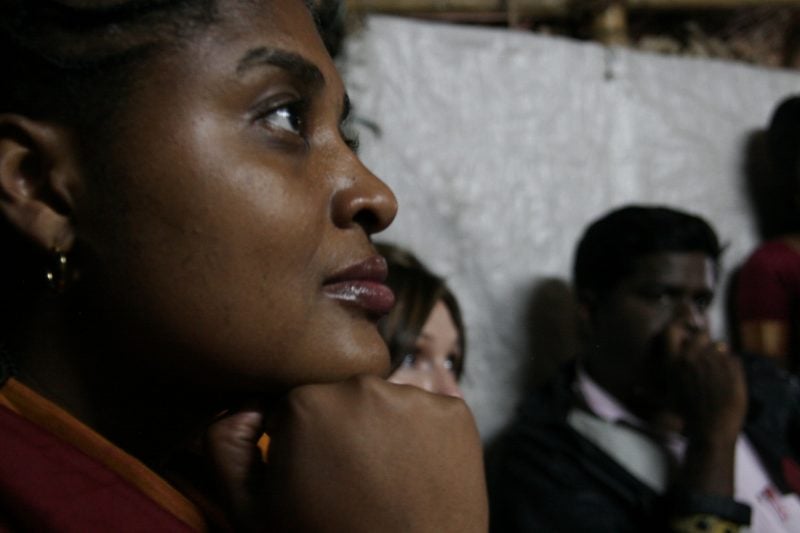 3. For those looking to make a positive impact on the places they visit, what advice would you give?
My advice is to make sure that you aren’t there to change people and fix their situations. People do NOT need saviors. They need supporters and allies. Learn more about the culture and despite all that you read, you will not be fully prepared. Expect and accept it. Allow yourself to be open and an observer.
3. For those looking to make a positive impact on the places they visit, what advice would you give?
My advice is to make sure that you aren’t there to change people and fix their situations. People do NOT need saviors. They need supporters and allies. Learn more about the culture and despite all that you read, you will not be fully prepared. Expect and accept it. Allow yourself to be open and an observer.
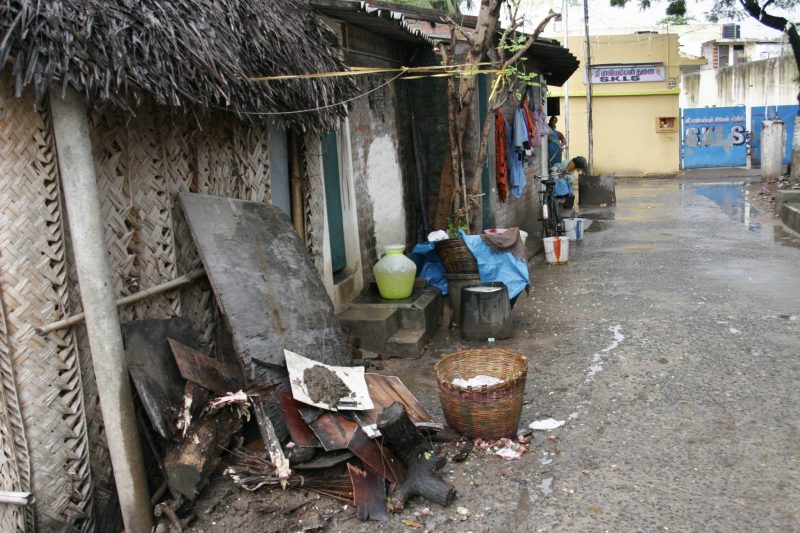 4. For those looking to volunteer or work abroad to help the local population, what tips would you give for choosing a responsible placement where they can make the greatest impact?
Because I was a part of a documentary, my experience was very different than a person who is going to volunteer. There are several reputable organizations that are worth considering. Partners International, a wonderful global organization, was very involved in identifying locations for our visits.
4. For those looking to volunteer or work abroad to help the local population, what tips would you give for choosing a responsible placement where they can make the greatest impact?
Because I was a part of a documentary, my experience was very different than a person who is going to volunteer. There are several reputable organizations that are worth considering. Partners International, a wonderful global organization, was very involved in identifying locations for our visits.
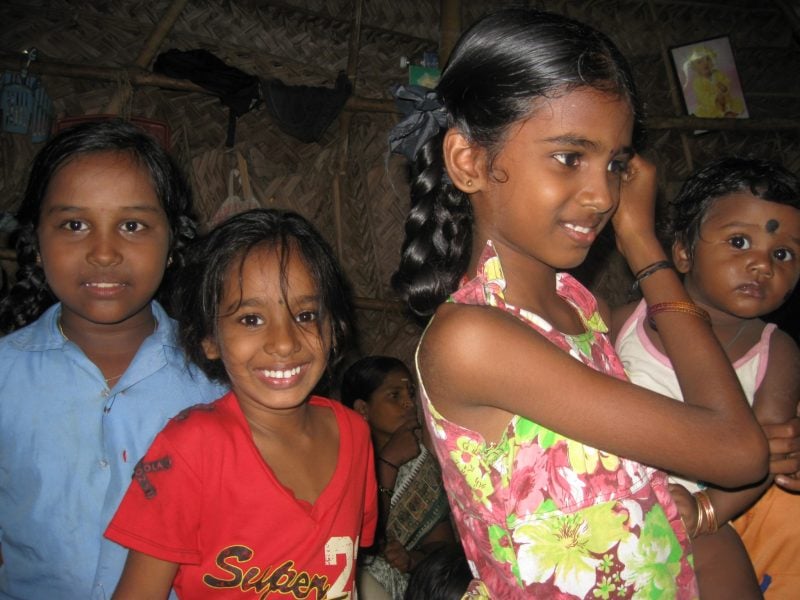 5. What have been the biggest challenges of visiting communities in need, and how have you overcome them?
In my role in the domestic division of an international NGO, I have learned that it is important to research a community to learn more about the area recognizing that it is very possible that what you discover on the ground might be very different than what you’ve read. Anyone with a heart wants to come in and help when you witness need(s), but you must be careful.
Sometimes we end up enabling individuals instead of really helping change their situation. It really requires discernment and connecting with organizations in that area that can offer insight and might be able to offer support long after you leave. I think we so often want to go in and fix things instead of allowing the experience to be an opportunity for transformation in our lives. The pain I witness in communities is, in my opinion, a nudge at my heart and spirit convicting me on how I might be able to use my resources, my skills, my knowledge to make a difference there or even in my local community.
5. What have been the biggest challenges of visiting communities in need, and how have you overcome them?
In my role in the domestic division of an international NGO, I have learned that it is important to research a community to learn more about the area recognizing that it is very possible that what you discover on the ground might be very different than what you’ve read. Anyone with a heart wants to come in and help when you witness need(s), but you must be careful.
Sometimes we end up enabling individuals instead of really helping change their situation. It really requires discernment and connecting with organizations in that area that can offer insight and might be able to offer support long after you leave. I think we so often want to go in and fix things instead of allowing the experience to be an opportunity for transformation in our lives. The pain I witness in communities is, in my opinion, a nudge at my heart and spirit convicting me on how I might be able to use my resources, my skills, my knowledge to make a difference there or even in my local community.
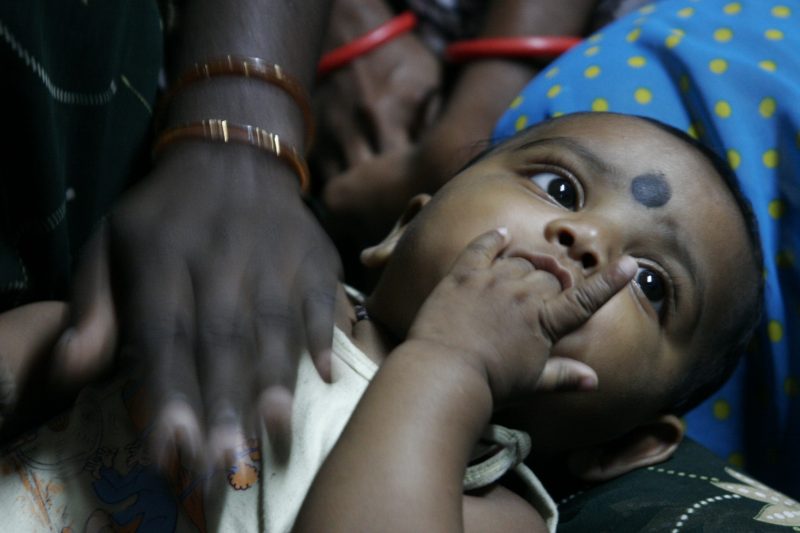 6. How did your India trip inspire you to go back to school? What do you hope to accomplish with your enhanced education?
I hope that I can use my PhD to help others–especially women–realize that we have more in common than we thought. At the time of my trip, my daughter was 8 years old. The same things I wanted for her–a safe community, a good education, a promising future–were the same things these women in India wanted for their children. They struggled with heartache, pain, love, and happiness just as I do/have/will. It is my desire to create opportunities for women of different backgrounds to connect with one another, which only happens through understanding your story and sharing that narrative with others.
My dissertation focused on a research group of diverse group of women–different religions (Muslim, Christian, Universalist), a range of ages (22-57), varied life experiences, backgrounds, races, and occupations; to see if they could build social capital over the course of several months. These women connected through sharing their stories. Despite their differences, they realized there were many things that they all experienced or understood. It is amazing that after two research groups, and several years later, these women are still friends and keep in touch. I am hoping that I am able to share this story and make it happen all over the world, especially in a time of such friction and hateful dialogue. We need more conversations, more safe spaces, and more understanding.
6. How did your India trip inspire you to go back to school? What do you hope to accomplish with your enhanced education?
I hope that I can use my PhD to help others–especially women–realize that we have more in common than we thought. At the time of my trip, my daughter was 8 years old. The same things I wanted for her–a safe community, a good education, a promising future–were the same things these women in India wanted for their children. They struggled with heartache, pain, love, and happiness just as I do/have/will. It is my desire to create opportunities for women of different backgrounds to connect with one another, which only happens through understanding your story and sharing that narrative with others.
My dissertation focused on a research group of diverse group of women–different religions (Muslim, Christian, Universalist), a range of ages (22-57), varied life experiences, backgrounds, races, and occupations; to see if they could build social capital over the course of several months. These women connected through sharing their stories. Despite their differences, they realized there were many things that they all experienced or understood. It is amazing that after two research groups, and several years later, these women are still friends and keep in touch. I am hoping that I am able to share this story and make it happen all over the world, especially in a time of such friction and hateful dialogue. We need more conversations, more safe spaces, and more understanding.
About Dr. Froswa Booker-Drew
Dr. Froswa Booker-Drew has an extensive background in nonprofit management, partnership development, training and education. She is currently National Community Engagement Director for the domestic division of an International NGO, serving as a catalyst, partnership broker, and builder of the capacity of local partners, facilitating the emergence and strengthening of community-led initiatives to improve and sustain the well-being of children and their families. She also assists various organizations through her business, Soulstice Consultancy, as a leadership/management and nonprofit consultant, trainer, or coach. *Photos courtesy of Dr. Froswa Booker-DrewBonus India Travel Resources
Traveling Northern India: 12 Things To Do Beyond The Temples & Taj Mahal Greatest Goa: Yoga, Dolphins & A Dose Of Clarity On Palolem Beach The Secret To Finding Peace In India Can Be Found In Bundi An Organic Farmstay Experience In Kerala, India 5 Must-Visit Places To Experience The Best Of India A Disappointing Spice Farm Day Trip In Goa (& What To Do Instead) How India Broke Me (& Why I’m Thankful For It) How To Get High (Legally) In Varanasi, India India’s Unique Karni Mata Temple Is Devoted To Worshipping Rats 10 Unforgettable Things To Do In Delhi, India Kayaking, Hiking & Cycling My Way Through Kerala, India [Video] That Time I Was Charged By An Elephant In Kerala, India Ayurvedic Massage In India: Not For The Modest10 Reasons Why You Need To Visit India
5 Amazing Ways You Can Explore India’s Spiritual Side 10 Reasons Why Kerala Should Be Your Next Trip 9 Essential Travel Tips For Southern India India Travel: Houseboating Through Kerala’s Backwaters Cycling The “Scotland Of Asia” To An Organic Farm In India Cycling India’s Cardamom Trail Ascending High Peaks & Hiking Through The World’s Highest Organic Tea Garden In India Why Kerala’s Silent Valley Is One Of The World’s Best National Parks Cycling Kerala’s Culturally-Immersive Canal Route Exploring The Culture Of Northern India Through Food
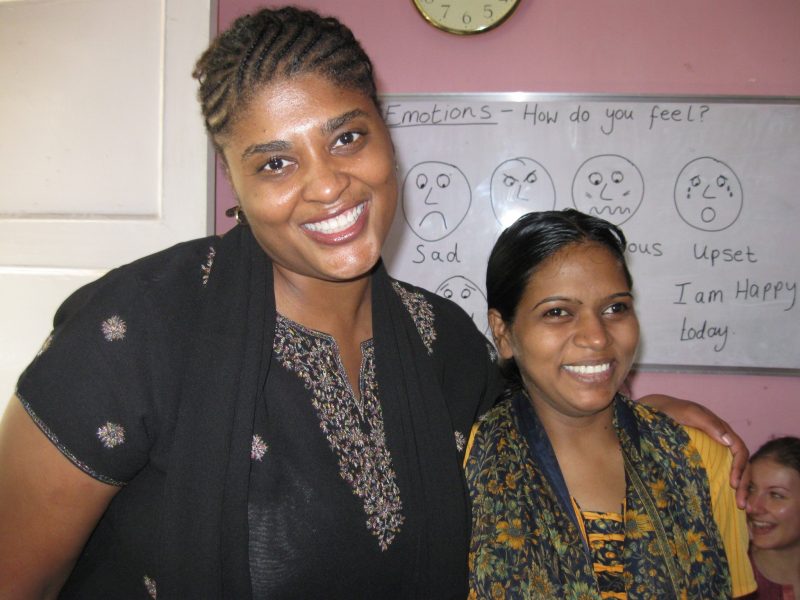
Hi, I’m Jessie on a journey!
I'm a conscious solo traveler on a mission to take you beyond the guidebook to inspire you to live your best life through travel. Come join me!
Want to live your best life through travel?
Subscribe for FREE access to my library of fun blogging worksheets and learn how to get paid to travel more!
Turn Your Travel Blog Into A Profitable Business
Subscribe to my email list to snag instant access to my library of workbooks, checklists, tutorials and other resources to help you earn more money -- and have more fun -- blogging. Oh, and it's totally FREE! :) // Privacy Policy.